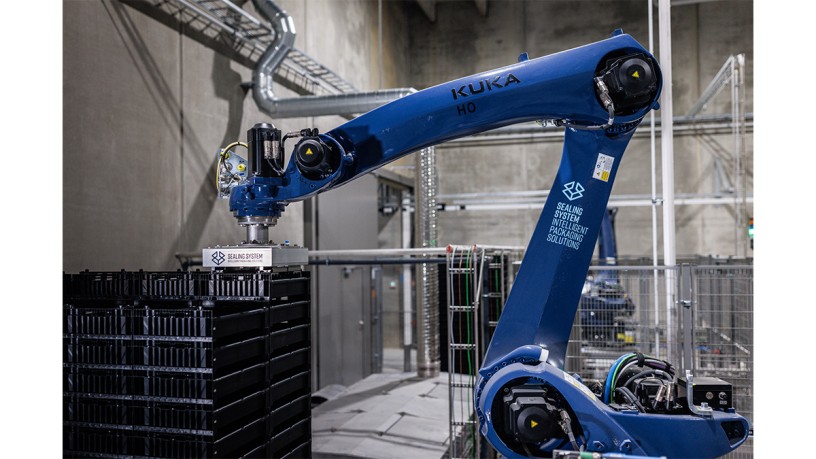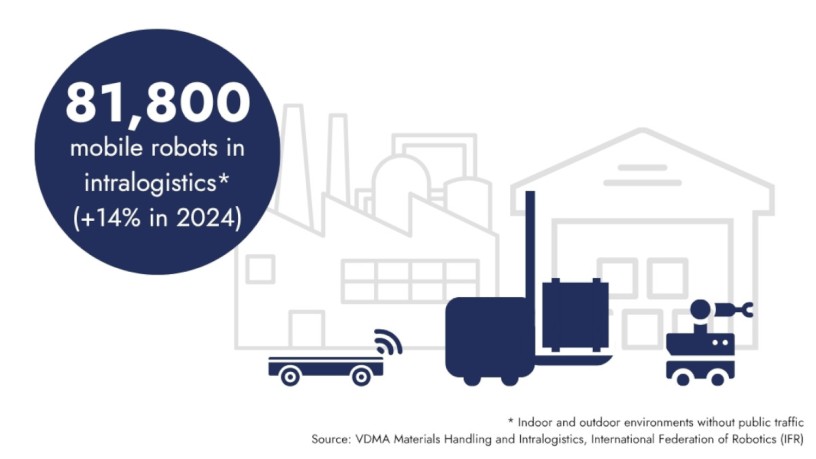Greater Efficiency along the Supply Chain
The food industry loses a huge amount of money every year due to production surpluses. According to the latest figures from the German Federal Office of Statistics, in 2020, 1.6 million tonnes, or about 15 percent, were produced in processing and 0.2 million tonnes, or two percent, were produced in primary production in this country. Globally, the Food and Agriculture Organisation (FAO) of the United Nations estimates that 1.2 billion tonnes are lost every year along the entire food supply chain. The resulting global greenhouse gas emissions (GHG) per year are estimated at 4.4 gigatonnes.
New value through upcycling
On the other hand, if food remains in circulation, this supports climate protection and protects resources. Digitalisation provides the options that make this possible. For example, when surpluses and side streams flow back into the circular economy via online platforms. Start-ups such as SPKR.global in Berlin, Leroma in Düsseldorf or Invisible Foods in Barendrecht in the Netherlands are among the pioneers in this field. Surplus fruit, for example, can be sold via platforms like these. A matching algorithm finds the right buyer. The digitally-enabled, rapid matching of supply and demand significantly increases the efficiency of the supply chain, enabling the reduction of food overproduction in the long term. However, the aim is not only to quickly broker remaining stock. In the same way, the upcycling of residual materials and by-products that cannot be avoided due to production can be given a new purpose via the online platforms. In the process, some surpluses are used in neighbouring industries. Examples are coffee beans roasted too dark as a natural substitute for microplastics in peelings in the cosmetics industry and fish skin for the production of collagen capsules in the cosmetics and pharmaceutical industry.
Surplus matchmaking
On the SPRK platform as well, the actors are digitally linked and can communicate about supply and demand similar to a marketplace. The company works with farmers, producers and wholesalers to achieve this. On the consumer side, there are food processing companies, canteens, caterers and non-profit organisations. But how does this work in concrete terms? "Stakeholders input relevant information about their commodity, including, for example, tonnage, product specifics, quality and place of origin. We then offer the goods to interested parties on our platform," explains Alexander Piutti. "This way, buyers can receive goods spontaneously and at a discounted price, and instead of disposing of them in a cost-intensive way, suppliers can sell their goods for a fair price," the founder told Anuga FoodTec Magazin. The SPRK platform is able to match supply and demand of goods virtually in real time, ensuring freshness of the goods.
"Our goal is to find a solution for the global challenge of food waste along the supply chain," Piutti emphasises. Especially the surpluses at the beginning of the supply chain are a potentially effective lever for the expert. "The agricultural industry often has perfectly edible surpluses that cannot be fully marketed due to a lack of alternatives." This is, for example, the part of a harvest that finds no buyers and is then usually left on the fields and ploughed under. "This is called food loss, in addition to food waste, which is surplus that is already in the supply chain, leading to food waste," Piutti says.
AI for maximum efficiency
Through its B2B digital trading platform, SPRK is creating a secondary market for such surplus food so that the goods can be redistributed and processed rather than disposed of. Piutti says: "Our heart beats for the fresh produce sector, i.e. fruit and vegetables, the supreme discipline in the supply chain. This often involves unpackaged goods that have to be stored and transported refrigerated. It is therefore a race against time: the freshness of the products must be maintained until the products have found a buyer and can be processed. Fruit and vegetables are in great demand both on the B2B side by buyers like cutting companies, wholesalers and canteens and on the B2C side - especially with our NGO partners like Tafel Potsdam, for example," Piutti says.
For maximum efficiency, SPRK relies on artificial intelligence (AI) in its project. By means of corresponding algorithms, forecasts are to be made on the basis of historical surplus data and patterns as to when which type of goods will both arise and be needed. The system is based on an architecture called neural collaborative filtering. This merges semantic information about products with historical transactions and can generate suggestions about where to redistribute surplus food on the platform and where to process it. The increasingly efficient matchmaking of surpluses is intended to reduce food overproduction in the supply chain as a whole. "At SPRK, we generally see technology as the key to solving global problems. The special thing about AI is that it learns over time based on the constantly growing data input from SPRK partners, both on the supply and demand side," Piutti points out.
Systems engineering as a partner
Since its foundation in 2020, SPRK has found more than 80 partners. The network also includes systems and mechanical engineering. Piutti maintains a close exchange with systems and machine manufacturers, as they supply the processing industry as customers. In his experience, production partners are very interested in sourcing sustainably through SPRK. An example of this is the cooperation with Kronen from Kehl. "The food processing companies from the technology provider's network benefit from good availability and from fair, discounted purchasing costs for defect-free goods. We ourselves gain platform participants to redistribute the goods that are still fresh and the companies increase the predictability in sourcing the necessary goods. In this way, all players in the supply chain work together to reduce food waste, protect resources and the climate, and ensure a closed-loop economy in the food sector," says Piutti.
Participants of the SPRK platforms have so far been able to report or request surpluses digitally in a variety of ways - via email, SMS or form. For even more digital efficiency and simplified communication on all sides, Piutti and his team are currently developing a DIN SPEC, a kind of standardisation document, with the German Institute for Standardisation for the digitally supported, efficient redistribution and processing of surplus food. Furthermore, there is no technical requirement for a cooperation with SPKR to become part of the network. "Any supply chain player is welcome to contact us," Piutti said at the end of the interview.

Alexander Piutti is the founder and CEO of SPRK.global. He built several technology and impact companies, such as Overture or SirPlus, and has worked as a coach with Samsung, Daimler or the United Nations, among others, to support the definition and implementation of innovation and common welfare-oriented strategies. (© SPRK.global GmbH)




